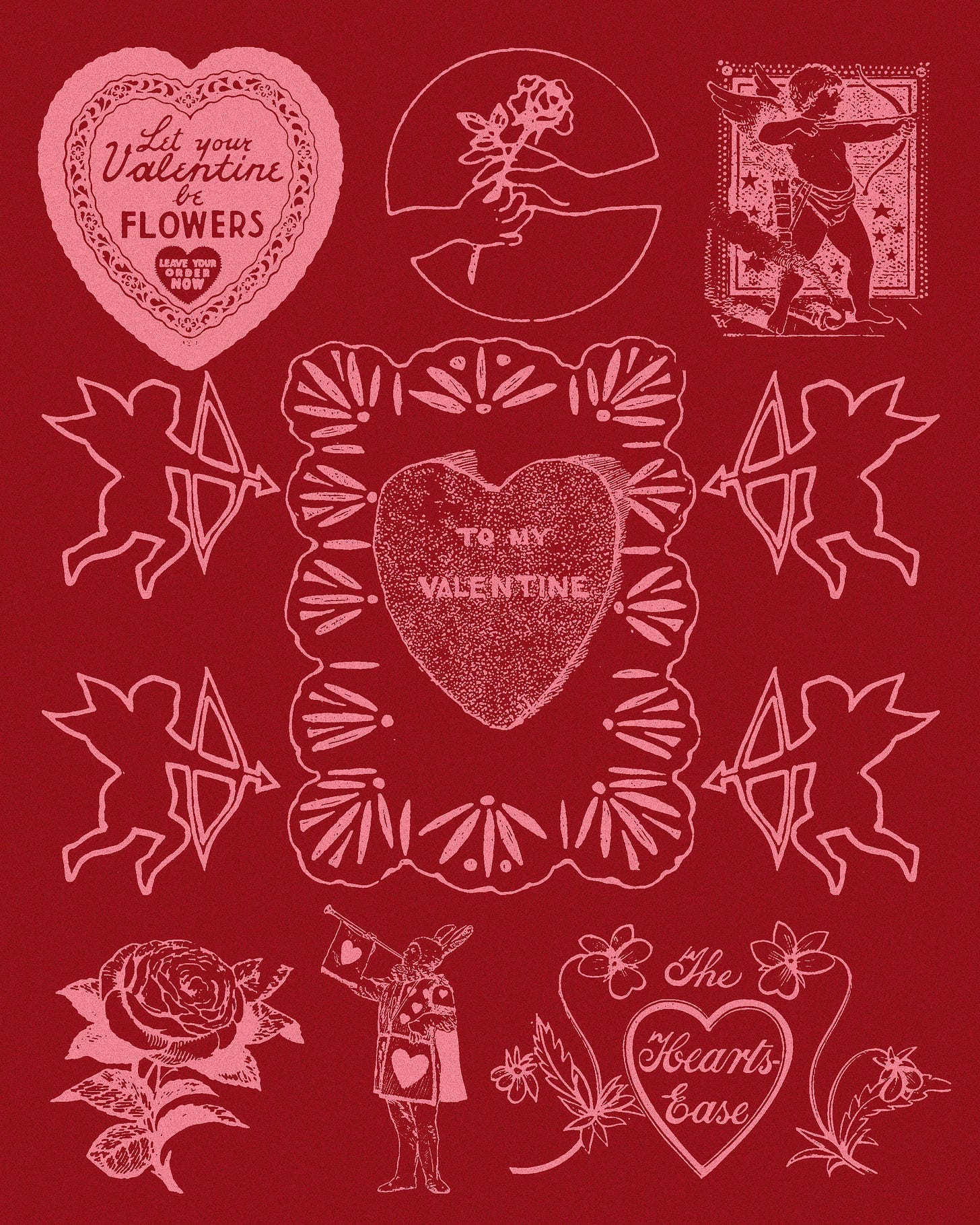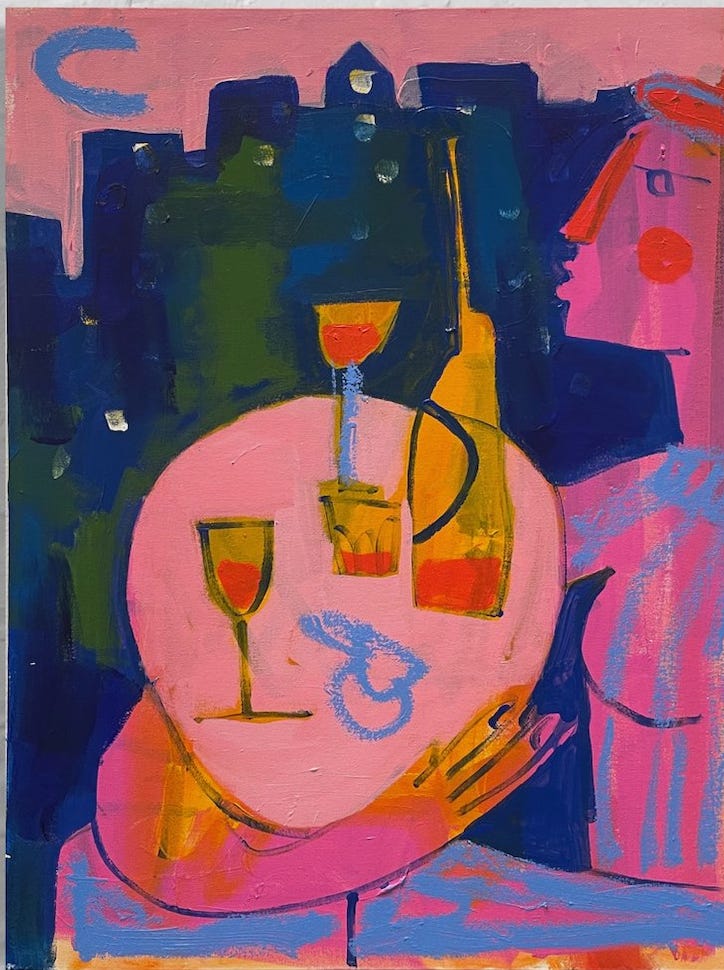“Of course I stole the title for this talk from George Orwell. One reason I stole it was that I like the sound of the words: Why I Write” — Joan Didion, ‘Why I Write’
“The most powerful human need is not money, not status, not even love; it is connection—the certainty that in this brief moment, in this vast and indifferent universe, we are seen.” — Ian McEwan
From a very early age, perhaps the age of five or six, I knew that when I grew up I would not be a writer.
I started writing when I was twenty-four years old. By that point, I’d completed two degrees in English Literature and had countless conversations with well-meaning friends and family about why I’m ‘not a writer.’ They would say things like, ‘you love reading so much, you should try it’. To which I’d respond: ‘I’m just not a writer.’
I gave this answer because of how much I read. I knew that most writers – like Orwell, who started ‘Why I Write’ with the assertion that he knew he was a writer from the age of five or six – simply had to write. The writing burst from them, like vomit. It was impossible to keep in. At the age of sixteen, when I discovered Virginia Woolf’s non-fiction and subsequently considered very carefully whether I should try my hand at writing, I came across this quote, from Jean Paul Satre:
“If you're a writer, you are always writing. Writing is like breathing; it's something you do without thinking”
And I thought: Well, that’s not for me then. If I were to write, it would be all effort. Huffing and puffing over the page. Twisting my thoughts around like braids. Contorting them. Spending hours consulting online dictionaries. Like breathing? No, writing felt to me – and still does, to be honest – like work. Enjoyable work. Exciting work. Mind-expanding work. The kind of work that fizzes in my head at night. The kind of work that makes life worth living. But still: work. Hours of labour. Of ‘no I can’t come out tonight because I have to write.’ Of forgetting-to-eat-fervour. Of concentration. Of discipline.
If I were to really interrogate why I write, I’d say there are three main reasons:
To connect with others.
To connect with myself.
To express things that can’t be said in normal conversation without sounding a bit mad.
But it’s the first one that’s the most important to me. I write to connect. To bridge the gap between myself and other humans. To find solace in the fact that we’re all in this together. To surpass the veneer of polite conversation and cut straight to the meat of it. The raw emotion.
One of my favourite quotes of all time is this one, by E. M. Forster, in Howards End: “Only connect!” he writes. “Only connect the prose and the passion […] live in fragments no longer.” Here, of course, Forster is writing of so many different things: connecting the inner world (the ‘passion’) with the outer (the ‘prose’); connecting between different cultures, and class structures; connecting our hopes and dreams and fears with the reality that we need to get up and make breakfast and go to work in the morning.
Connection, I think, has a lot to do with empathy. Ian McEwan wrote about this, for The Guardian. In fact, it’s a thread through all his books, this idea that to read is to exercise empathy:
“Imagining what it is like to be someone other than yourself is at the core of humanity. It is the essence of compassion, and it is the beginning of morality.”
Of course, this is what reading is. In his words, reading is the act of ‘think[ing] oneself into the minds of others.’ Malorie Blackman said it, too: “Reading is an exercise in empathy; an exercise in walking in someone else’s shoes for a while.”
Did you know that there is an actual, scientifically-proven link, between reading and empathy? No, really, there is. Those who read are more empathetic, because those who read spend many hours of their lives subsumed within the lives – and minds – of others.
We read to feel understood. We read to feel as though we belong. Ultimately, we read to feel connection – not only to characters, writers, thinkers sometimes many years in the past – but also to ourselves. (Books are, after all, mirrors to the soul).
“The best moments in reading are when you come across something—a thought, a feeling, a way of looking at things—that you had thought special and particular to you. And now, here it is, set down by someone else, a person you have never met, maybe even someone long dead. And it is as if a hand has come out, and taken yours.”
— Alan Bennett, The History Boys
Last year, Merriam-Webster chose ‘polarisation’ as their word of the year. The dictionary’s editor-at-large said, of this choice, that it “means that we are tending toward the extremes rather than toward the centre.”
And it’s true. We exist in millions of tiny bubbles. Echo chambers designed just for you. We turn to the internet to find a community of people who believe the same things that we do: that all humans deserve respect, and empathy, and love. That the world is going to hell in an algorithm hijacked by tech-bro-billionaires.
In a world divided, we read to feel connected.
And that’s why I think Substack is having such a huge boom, right now. Because community – that thing so crucial to human contentment – is in such scarcity, and it’s what these writers provide. With essays about the things we all experience and readers who can join group chats and talk about things like the ‘I met myself for a coffee’ trend and whether the ‘T’ on Taylor Swift’s thigh at the Grammys stood for ‘Taylor’ or ‘Travis’ (important stuff).
When I started this Substack, I wanted to create a community that felt like a girl’s bathroom and a seminar all at once. A group of like-minded people to trade ideas like secrets. For those who notice all the tiny joys in life and want to make more of them; for those who feel too much, or simply want to find a community of similar minds.
On Friday, I launched my first ever zine, Love in the Time of Heartache. And I’m already completely overwhelmed by the response. I’ve sent it, in love-letter-envelopes, across the whole world. Right now, it’s winging its way across the North Atlantic ocean, and the North Pacific sea. Soon, it’ll be slipping through doors in Saskatoon, Canada and Athens, Greece, and Wellington, New Zealand.
As I was packing envelopes, I thought I’d make a map of all the addresses I’d sent it to so far (this was just the first day). The map made me cry. Because it’s just such an controvertible visual of connection amidst polarity. Tiny little hearts thrumming all over the globe.
And now, as they’ve started to arrive, some of the responses in my inbox make me think that I might just have succeeded, in creating this gorgeous community.
Here are a few:
Anyway, what I wanted to say was that I felt very seen and much less alone reading these pieces, so thank you.
It was so poignant and every word resonated with me. Bravo Hannah I’m actually lost for words - you’ve created something really special. Thank you - I needed this so much right now.
You can really tell how much of a labour of love this was. I enjoyed every single piece and the playlist to go with it felt like such an experience. It really was a tonic for a lover girl’s soul.
Notes On: Love in the Time of Heartache is a publication full of essays and poetry and recipes and love letters, all illustrated with unique artwork. From us (readers, thinkers, artists, hopeless romantics), to you (whoever you may be).
I chose my collaborators very carefully. Each one is from a different part of the world. Each one creates art that makes me feel seen, and connected to something bigger than myself.
- is a best-selling author from New Zealand, now based in Lisbon. She writes – and I quote – ‘words to make you feel less alone in the world’ (my heart).
- was published in the ‘Modern Love’ column of the New York Times. Originally from Sydney, she moved to London for her postgrad, and never left. Her first novel came runner up for the Cheshire Novel Prize. (Watch this space).
- a UK-based artist whose practice ‘investigates the intersection of cultural memory and spiritual consciousness through large-scale paintings and installations.’ Right now, her work is being exhibited at The Standard in New York, Villa Lena in Tuscany, and In-between Ibiza.
- was raised in Lagos. Since then, she’s moved to Canada, the US, and is currently based in Germany. She writes an incredible, insightful, funny, gorgeous Substack called ‘as seen on.’
Theresa Lola is a British Nigerian poet and author of two poetry collections, the second of which was praised by The Guardian as a book that “assures her place as a trailblazer for a new wave of poets.”
- is a graphic designer and digital artist based in Michigan. Her Substack is just gorgeous.
- is a French novelist based in Glasgow. Her book, The Yellow Kitchen absolutely took my breath away. Her second book, Breastrokes, has just come out in paperback. It is described as: ‘a story of unexpected encounters and intimacies, it’s perfect for fans of Cleopatra and Frankenstein and Beautiful World, Were Are You’. (I devoured it in one weekend).
Natalija Stamenković is a graphic designer and I’m just obsessed with her creations, tbh.
- is a Cambridge-based journalist-turned-PhD-student who writes the beautiful Substack ‘this is what I want to say.’
Kim Addonizio is a San-Francisco-based poet who has received numerous awards for her work, including fellowships from the Guggenheim Foundation and the National Endowment for the Arts, a Pushcart Prize, and the John Ciardi Lifetime Achievement Award.
Maxine McCrann is an NYC-born artist now based in Toronto. Her work is ‘deeply inspired by community, food, wine, and the pursuit of pleasure.’ You’ll want to Pin every single one of her creations.
- is a London-based nature-inspired artist. Her work has been featured in publications such as Vogue, House & Garden, Stylist, Time Out, Glamour, Grazia, Hello, Country & Townhouse, Living Etc, Good Housekeeping and more. Her Substack is cosy and beautiful and soft and slow.
And finally, Forever Forever Band is a new indie band, based in London. Their first single, ‘Difficult Feelings’ is one of the most beautiful songs I’ve ever heard. It was released on Valentine’s Day, and has already been featured in apple music editorial on ‘New in Indie’ and ‘New in Alternative’, next to artists like Bon Iver and Lucy Dacus. If you like Phoebe Bridgers, or Noah Kahan, then you’ll be obsessed with them.
P. S.
I spelt Margaux’s surname wrong in the zine. I couldn’t believe it. It was the most embarrassing thing that ever happened to me (which is why I’m writing it down, because that’s what writers do, eh?). HUGE APOLOGIES to Margaux. Your name is beautiful and I clearly cannot spell French names.
P. P. S.
I was overwhelmed with orders (!!) and the zine sold out in just a few weeks (which is insane). (Thank you so much!).










ur zine was a real experience, the playlist just made it 10X better!
Love this article! So so true - and over the years, it’s why I’ve come back to writing time and time again. It’s also why the name of my newsletter/coaching business is “Shared”, because I think everything we crave and benefit from comes from shared experiences and connection. It’s so so beautiful and powerful 🤍